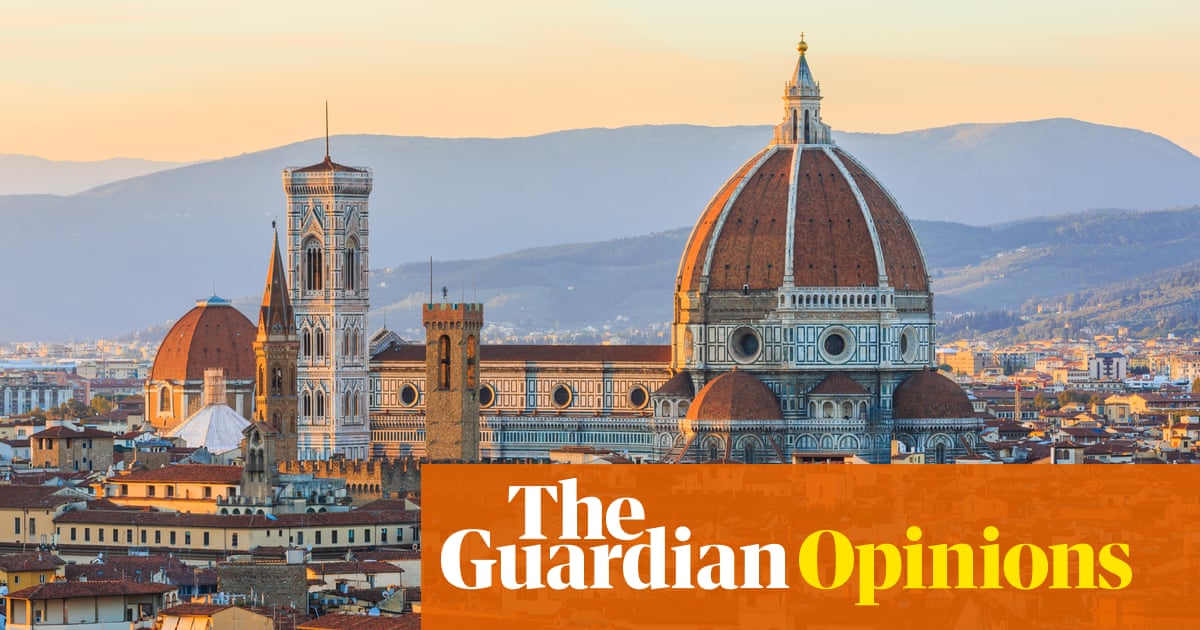
There is a fitting Sopranos-esque vagueness to the phrase “in talks with”, as in, Tony is in talks with New York or Carmela is in talks with the priest. The US streaming platform HBO Max has announced that it is in talks with David Chase about bringing the surprising TV hit of the pandemic back to the small screen. “We’re talking to David about a new series, Sopranos-related, on HBO Max,” confirmed television executive Ann Sarnoff last week.
It would be surprising, at this stage of renewed Sopranos fever, if these talks were not happening. The last two years have brought flash-in-the-pan TV smashes, from Mare of Easttown to Bridgerton to Squid Game, but there has been nothing like the level of reverence still bestowed on The Sopranos, either by those rewatching it for the second or third time (I put my hand up here) or the people who have come to it fresh, having been too young to absorb it when it was first on air.
Now there is a whole cottage industry around the show. It used to be that if you wanted to dig deep into a television series, there might be a companion book to accompany it. How quaint that seems today. Now there are think pieces, a vast number of podcasts, a new interview with a surviving cast member at least once a week and a gluttonous feast of information and analysis at which even Tony might balk.
Chase has already returned to its world for the recent prequel film The Many Saints of Newark and any new series would likely follow that time period, but precede the original show, which began in 1999. I have seen enough episodes of the fabulous TV insider soap The Morning Show to know that talks of this magnitude can be bumpy and my fingers are only tentatively crossed that it will come back.
Much of The Sopranos’s present appeal seems to be rooted in its existence during a different time and context. Does it appeal as a prophecy of the decline of America or a creation free from contemporary society’s more puritanical cultural demands? Edie Falco, who played Carmela Soprano, talked to the New Yorker recently, and put forward her theory that it can be all things: “Maybe… one of the reasons it was successful is that it appealed to lots of different people for lots of different reasons.”
It is a position that seems almost impossible to inhabit now, in a world stripped of nuance and subtlety, while The Sopranos had both in abundance. I am infinitely curious about what Chase might decide to do with it.
Adele: all hail, queen of the earworms
It would only really count as news if Adele had not gone straight to the top of the British charts with Easy on Me, her first new song in five years, though bizarrely, only her third number one single.
She has returned to music emphatically, with Adele-esque gusto, setting the highest combined streaming/sales figures since Ed Sheeran’s ubiquitous Shape of You in 2017 and annihilating the previous streaming record for a first week of release, formerly held by Ariana Grande’s 7 Rings, which isn’t even her best song. Grande set the bar with 16.9m streams of her song in one week; in seven days, Easy on Me was streamed 24m times.
A friend told me that they hadn’t bothered streaming Easy on Me when it “dropped” as they knew they’d hear it soon enough; inevitably, they heard it three times that day, twice in the car and once in a shop. Adele has Tyson Fury-ed her way to record-breaking listening figures, but that doesn’t begin to take into account the passive listening that goes on. As staggering as they are, these figures must barely scratch the eardrums of how many people have actually taken it in.
Fleetwood Mac: I never thought of The Chain as funereal...
O f all the morbid parlour games that dramatic people love to play, “what song would you have played at your funeral?” is surely up there with “what’s your death row meal?” (builder’s tea and hot buttered toast, if you’re asking).
Co-Op Funeralcare has released its annual list of the most popular songs played at funerals, which offers its usual insight into the changing British psyche, revealing that right now we love a good cry to Ed Sheeran.
There was a report of one request to play WAP by Cardi B and Megan Thee Stallion, which seemed funny, until I realised it was probably a younger person’s funeral, and then it became upsetting. In more traditional waters, the top 10 revealed a steady emotional range for funeral music. The most popular songs are either celebratory – My Way, Always Look on the Bright Side of Life – or consolatory, as with Time to Say Goodbye or We’ll Meet Again. Robbie Williams’s Angels, famously a staple of both weddings and funerals, has dropped out of the top 10, while Fleetwood Mac’s The Chain has made a surprising first appearance at number seven.
I may have jumbled it up with the fractious Fleetwood Mac mythology, but I never thought of The Chain as being celebratory or consoling. “If you don’t love me now, you will never love me again” struck me as a sad, pointed line; likewise, “damn your love, damn your lies”. But the sentiment, I suppose, is an unbreakable bond, under any circumstances, and anger at a funeral may well be as fitting an emotion as any.
Rebecca Nicholson is an Observer columnist












